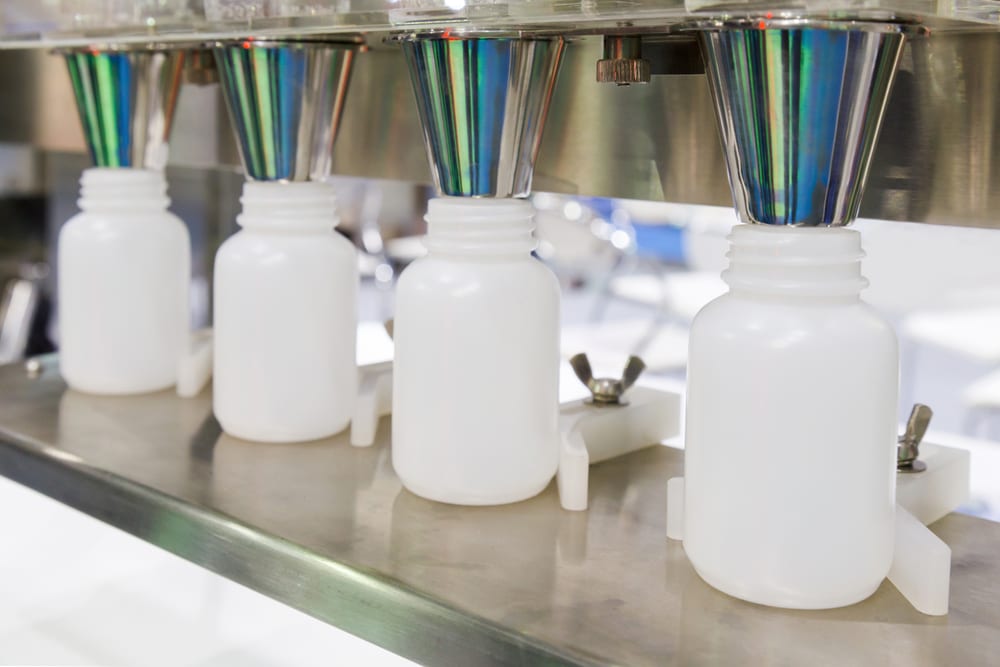The widespread usage of dietary supplements among adults of all ages is on the rise. Driven by the heightened interest in preventative healthcare and the aging population, sales of herbal supplements, minerals, and vitamins have surged. But what is the true supplement manufacturing cost?
Bạn đang xem: The True Cost of Manufacturing Supplements & Vitamins
In this article, we will delve into everything related to supplements, including why they are on the rise and the actual cost of manufacturing.
Why Bring a Supplement to the Market?
Today, a large number of adults worldwide use dietary supplements to enhance their health. These products, packed with healthy ingredients like enzymes, amino acids, botanicals, minerals, and vitamins, come in various forms such as capsules, tablets, liquids, gel caps, powder, or soft gels(1). The global dietary supplement industry is expected to reach USD 196.63 billion by 2025, with a CAGR of 7.8 percent during the forecasted period (2).
Growing consumer awareness concerning health issues, a surge in disposable income, along with rapid urbanization, is expected to drive the growth of the market over the next seven years. Moreover, consumer attitudes are positive towards dietary supplements with added wellness and health benefits, leading to accelerated market growth and product demand.
How the Supplement Market Can be Broken Down
Ingredients:
When it comes to ingredients, the market is segmented into amino acids and proteins, botanicals, minerals, vitamins, specialty carbohydrates and fibers, and omega fatty acids. Vitamins emerged as the largest segment, registering revenue of $37.64 billion in 2018. The segment is projected to grow at a CAGR of 5.6 percent in the years to come(2).
The rise in the demand for herbs for possible health benefits is projected to accelerate the botanicals segment in the forthcoming years. Furthermore, growing concerns regarding the adverse effects of traditional medicines are anticipated to promote the application of botanical extracts in manufacturing dietary supplements.
Weight & Energy Management:
Xem thêm : How to Change Admin Name on MacBook Pro in 2024 [Easy Process]
Weight and energy management and other closely related types of supplements contribute significantly to the growth of the dietary supplements market. Weight & health management held the largest market share in 2018, driven by the rising trend of online weight loss programs and government initiatives for healthy lifestyles.
Sports:
In the sports sector, many athletes make use of supplements to boost their performance, including about 85 percent of elite field and track athletes(3). The growing geriatric population also creates ample opportunities for supplement manufacturers, as most people in this age group can’t meet their RDA (Recommended Dietary Allowance) due to dietary intake deficiency.
Encapsulation:
Based on product encapsulation, tablets held the largest market share in 2018, driven by the increasing demand for tablets because of their easy dosage patterns. The Asia Pacific is anticipated to witness the fastest growth over the forecast period.
The True Cost of Manufacturing Supplements
If you’re thinking of starting your own supplements or vitamins line, understanding the hidden costs of manufacturing these products is essential. This knowledge will help you explain to your customers why your supplements are priced higher. Let’s start with the capital required to open a supplement business.
You can start a supplement business with about $5000; however, having $10,000 to invest makes it much easier. With $5000, you can get:
- 150 units of supplements
- Insurance
- A website
- Professionally designed labels
Transparency isn’t Cheap
Consumerlabs.com, a third-party testing company, estimates that about a quarter of health supplements are adulterated or diluted with ingredients not listed on the label. To ensure your shelves are stocked with quality products, you should choose an FDA-registered, GMP-certified, and NSF-certified supplement manufacturer. Additionally, the manufacturer should be able to provide an analysis certificate for each batch. While these manufacturers may not be the most affordable, they offer guaranteed products.
Branding Ingredient Quality
Xem thêm : All Electronic Lock and Password (Door Codes)
Products that contain patented, branded ingredients usually cost more. These organizations invest to guarantee the efficacy and quality of their specific compounds or strains. The quality and safety of the raw materials used in manufacturing the supplements also influence their price.
Factors Influencing The Price
- Ingredient Source: The source of an ingredient can impact its price. Ingredients developed after years of research are more expensive due to the investments required.
- Origin: The origin (synthetic or natural) of the ingredients also affects the price. Synthetic ingredients may save money, but they lack the same quality as natural ingredients.
- Type of Packaging: Different ingredients require specific packaging types, which can impact the supplement price.
- The Concentration of Ingredients: The concentration of raw materials and their daily dosage affects the price. Cheap products with low ingredient concentrations are unlikely to be effective.
The Bottom Line
Understanding the true cost of manufacturing supplements and vitamins is crucial for business owners and consumers alike. The supplement market offers significant opportunities for manufacturers and retailers to tap into a growing sector. To ensure quality and transparency, partnering with reputable manufacturers like SMP Nutra is essential. They offer expertise in private labeling, manufacturing, and fulfillment, all at competitive prices.
Frequently Asked Questions
Coming soon!
Conclusion
The true cost of manufacturing supplements and vitamins involves various factors, including ingredient source, origin, packaging type, and ingredient concentration. Understanding these costs helps business owners make informed decisions and provide transparency to customers. It is important to partner with reliable manufacturers to ensure high-quality products. With the supplement market’s continuous growth, manufacturers and retailers have the opportunity to thrive in this sector. Partnering with SMP Nutra can help businesses stand out from the competition and meet customer demand.
References:
- Market Research Future – Health Supplements Market
- Grand View Research – Global Dietary Supplements Market
- Tandfonline – Dietary supplement use among elite field and track athletes
- IBISWorld – Health Stores Industry
Nguồn: https://eireview.org
Danh mục: Technology

